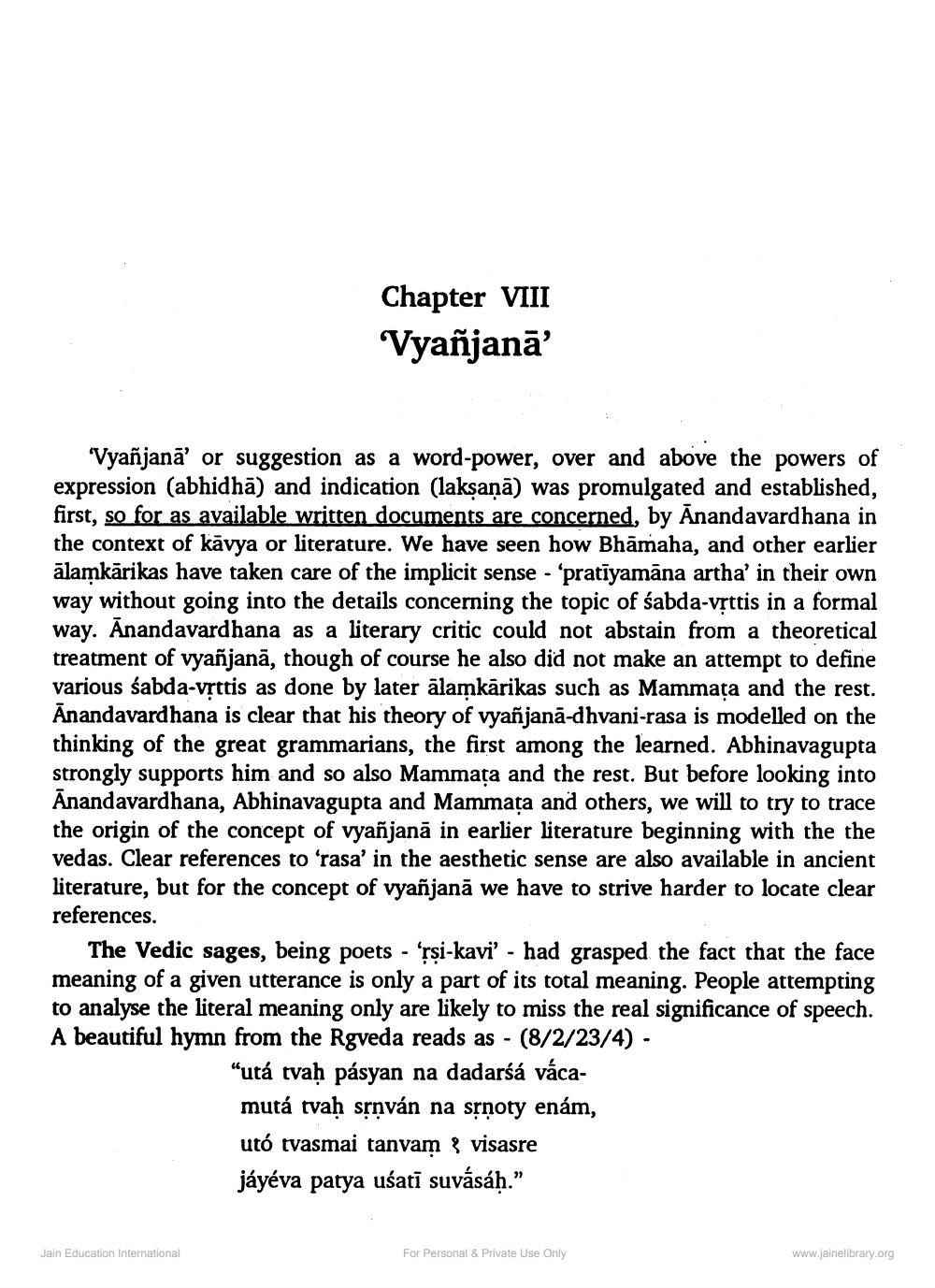________________
Chapter VIII Vyañjanā'
"Vyañjanā' or suggestion as a word-power, over and above the powers of expression (abhidhā) and indication (laksaņā) was promulgated and established, first, so for as available written documents are concerned, by Ananda the context of kāvya or literature. We have seen how Bhāmaha, and other earlier ālamkārikas have taken care of the implicit sense - 'pratīyamāna artha' in their own way without going into the details concerning the topic of śabda-vittis in a formal way. Anandavardhana as a literary critic could not abstain from a theoretical treatment of vyañjanā, though of course he also did not make an attempt to define various sabda-vsttis as done by later ālamkārikas such as Mammata and the rest. Anandavardhana is clear that his theory of vyañjanā-dhvani-rasa is modelled on the thinking of the great grammarians, the first among the learned. Abhinavagupta strongly supports him and so also Mammata and the rest. But before looking into Ānandavardhana, Abhinavagupta and Mammața and others, we will to try to trace the origin of the concept of vyañjanā in earlier literature beginning with the the vedas. Clear references to 'rasa' in the aesthetic sense are also availabl
ture, but for the concept of vyañjana we have to strive harder to locate clear references.
The Vedic sages, being poets - 'rși-kavi' - had grasped the fact that the face meaning of a given utterance is only a part of its total meaning. People attempting to analyse the literal meaning only are likely to miss the real significance of A beautiful hymn from the Rgveda reads as - (8/2/23/4) -
“utá cvaḥ pásyan na dadarśá vácamutá tvaḥ snván na srnoty enám, utó tvasmai tanvam visasre jáyéva patya uśatī suvásáḥ.”
Jain Education International
For Personal & Private Use Only
www.jainelibrary.org




